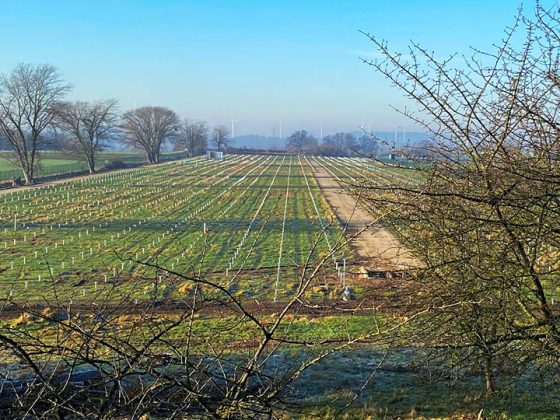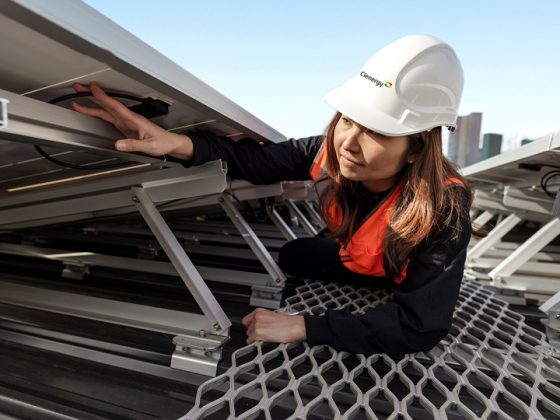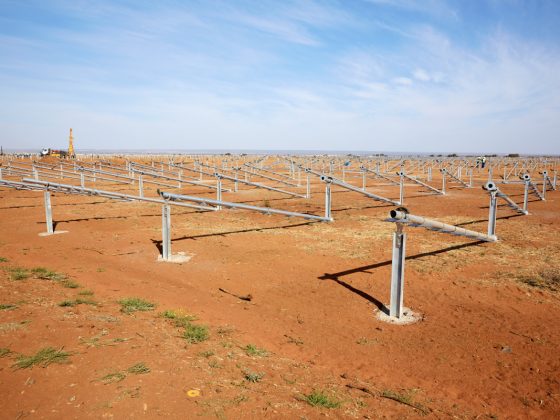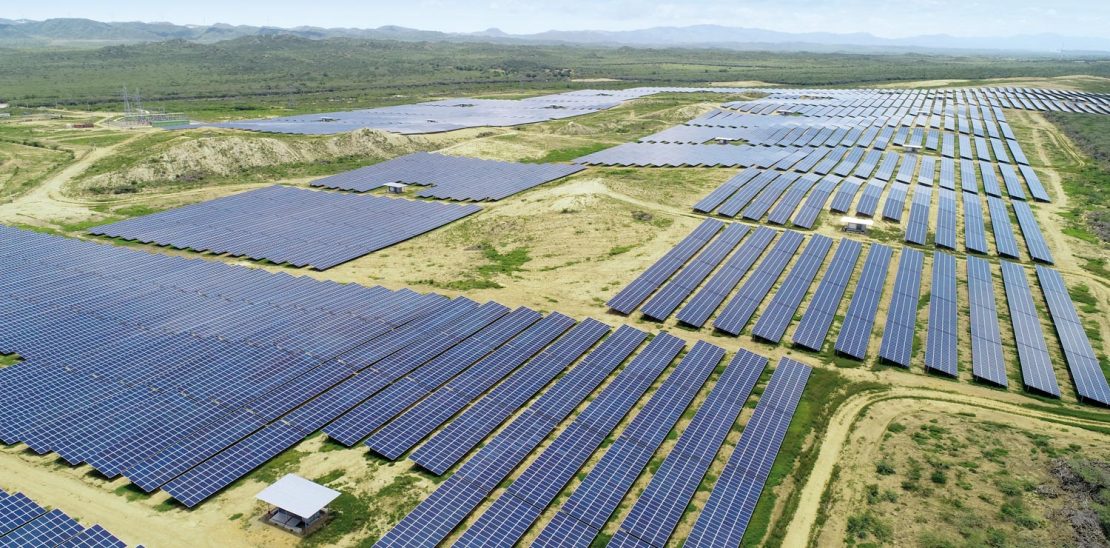
Mr Czypiorski, what are the biggest challenges for F&S Solar Service currently?
The top priority is the procurement of materials. Photovoltaic modules, raw materials, electronic components – it’s all down to the problems in global supply chains caused by the coronavirus, but also due to losses such as in the Suez Canal. Incidents like these are where our hands are tied. This means that we currently have to get through this phase simply by postponing or adapting projects. This is related to the fact that component prices have risen by up to 30 per cent in recent months, whereas in previous years prices only knew one direction: downwards.
Other sectors have been complaining about the lack of skilled workers for a long time. Is this also the case in the solar industry?
Yes, the lack of skilled workers has increased enormously. While university graduates are relatively easy to find for office tasks, fewer and fewer want to do manual work in service on PV systems. We would like to hire skilled workers, but there are hardly any to be found. We believe that is an issue of the state’s education and training policy and is not the only shortfall of renewable energy policy.
What shortfalls are you referring to?
Another problem is bureaucracy. Uniform guidelines are lacking when constructing photovoltaic power plants in the open air, and sometimes authorities make things difficult. For example, we would like to install more photovoltaic systems on roads or along railway lines, which policy in general is in favour of. However, when we request this here in North Rhine-Westphalia, the authorities often find reasons outlined in paragraphs that prevent plant construction in the end. We have had discussions with responsible politicians, who have likely passed the content on to officials in charge. We are now slowly moving forward now. I have been participating in the bureaucratic circus on the Renewable Energy Act for 20 years now – it has been exhausting.
F&S solar service GmbH is now a global solar project developer and EPC. At the head office in Euskirchen, 15 technicians take care of remote monitoring of the solar parks and the annual maintenance and inspection work. LAPP is a partner to the solar expert and has already successfully implemented a number of logistically challenging projects, including those in Monte Cristi (Dominican Republic).
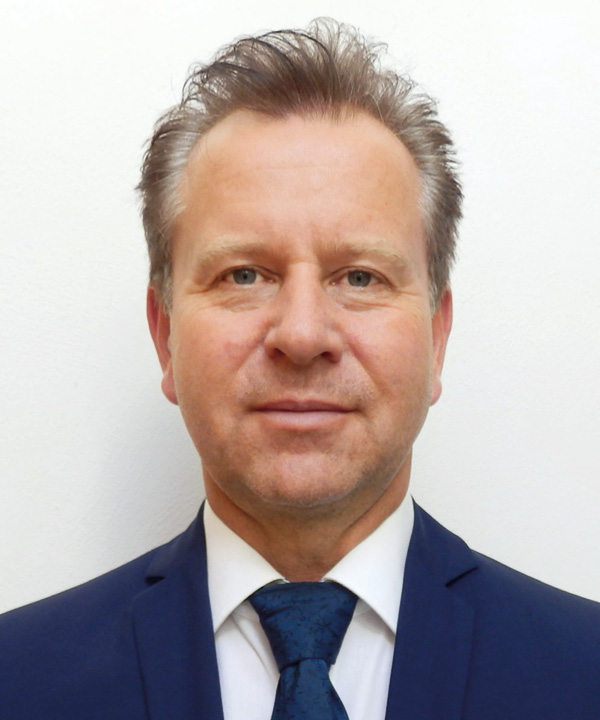 Mr Uwe Czypiorski has been the Managing Director of F&S solar concept since 2009 and has been a managing partner since the foundation of F&S solar service. He founded his first electrical company back in 1991 as a tradesman in the field of general electrical engineering. He gained his first experience in the field of photovoltaics there back in 1998. The specification in the field of photovoltaics and renewable energies only really got underway with F&S in 2006 and, through the project planning and construction of over 1700 plants, he has significantly advanced the company’s development.
Mr Uwe Czypiorski has been the Managing Director of F&S solar concept since 2009 and has been a managing partner since the foundation of F&S solar service. He founded his first electrical company back in 1991 as a tradesman in the field of general electrical engineering. He gained his first experience in the field of photovoltaics there back in 1998. The specification in the field of photovoltaics and renewable energies only really got underway with F&S in 2006 and, through the project planning and construction of over 1700 plants, he has significantly advanced the company’s development.
How do you rate the Renewable Energy Act overall?
It was very successful. It is thanks to this act that we have achieved parity with fossil energy generators. A large open-air plant generates solar power for less than five cents and this price will continue to fall. Nowadays, we usually build plants without an EEC subsidy, which means that these power stations are worth it entirely without subsidies. And the time for energy amortisation, i.e. until the plant has compensated for the energy for its own production and installation, is just three years for new PV power plants. The plant then supplies 100 per cent green power with zero emissions – for more than 30 years. The service life of the modules has increased considerably; even banks now finance power stations like this for over 30 years and more.
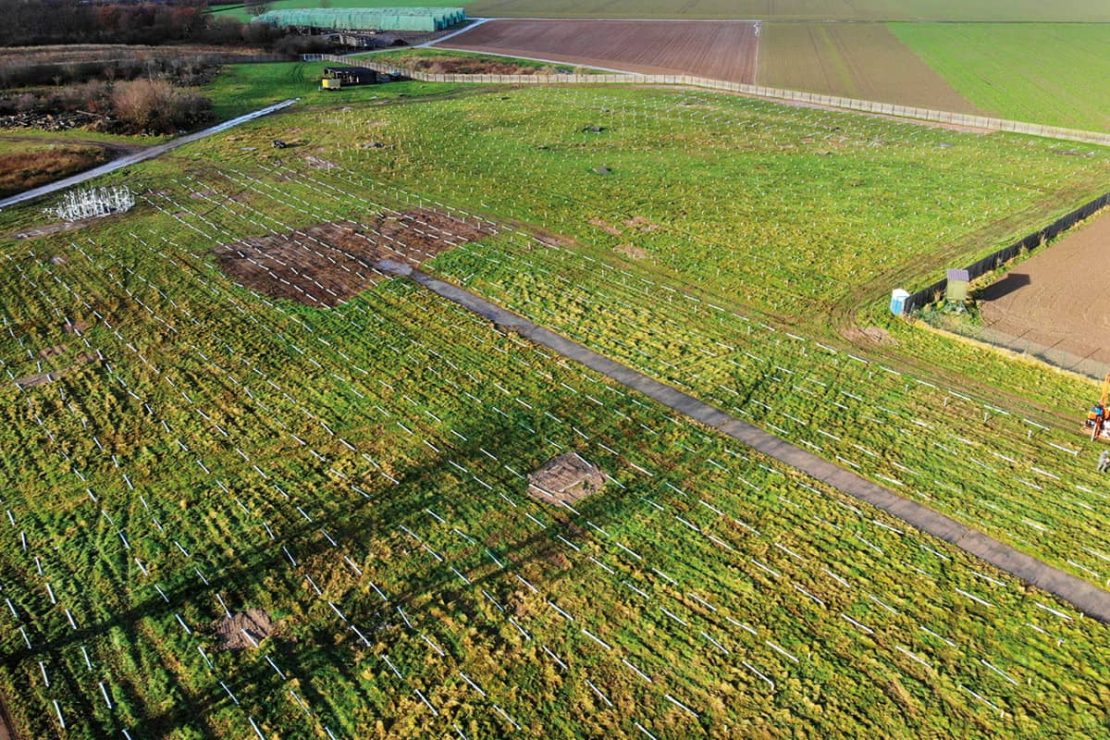
Is there enough space in Germany for photovoltaic power plants?
Absolutely, yes! From former landfill sites to industrial land to former agricultural land – we use all land except protected areas. When we consider an area, we examine it based on various criteria such as the strength of the substrate or possible reuse. For example, we like to collaborate with shepherds to ensure that grass doesn’t grow into the modules – sheep are ideal lawn-mowers.
The mains connection is presumably also a criterion?
Exactly. We need a grid feed-through point that can cope with the required feed-in capacity. But we are in a good position in Germany, with the grid being sufficiently developed almost everywhere.
LAPP cables are used in all F&S Solar PV power plants. Why?
I have known LAPP for ages. There have never been any problems with LAPP products. This is confirmed by my people who deal with cables every day. An important criterion is the ability to deliver. At the Brainergy solar hydrogen park in Jülich, we need 210 kilometres of string cables, 21 kilometres of DC main cables and several kilometres of fibre optic cables and AC medium-voltage cables. A cable manufacturer first has to have such quantities available. LAPP has always been able to deliver, even to isolated areas of the world, such as our solar park Montechristi in the Dominican Republic. The quality, logistics and price have always been right.
We are delighted that you are so satisfied with LAPP. But there are certainly also things that we can improve upon?
I would like to see an even wider range of accessories, such as installation systems. It would also be interesting for us if LAPP could take on other services on the construction site, such as quality assurance for the cabling. We currently outsource the commissioning procedure for the medium-voltage cables to third parties. If the cables come from LAPP anyway, LAPP could also offer that.
Thank you, Mr Czypiorski, for the interesting conversation.

